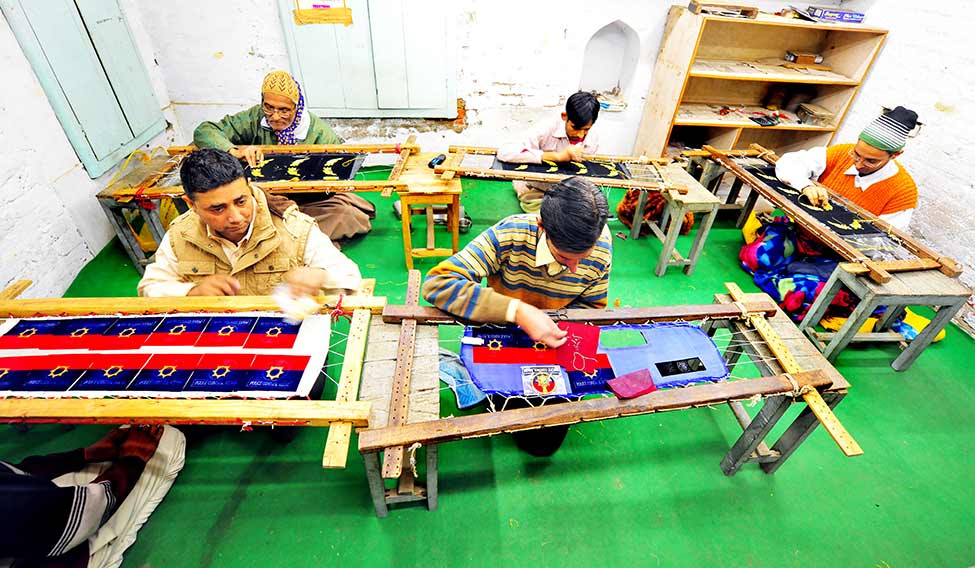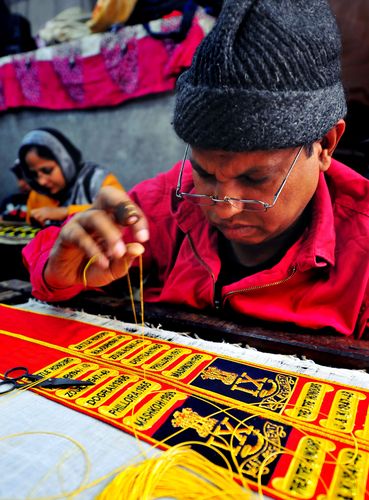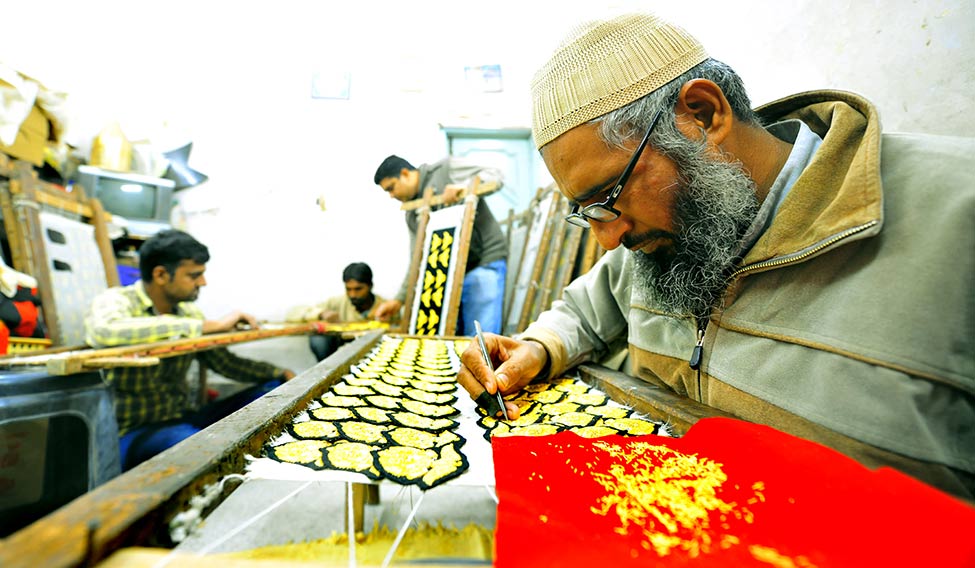As the train chugs into the quaint little station, Malerkotla looks like another nondescript town of Punjab. But Malerkotla’s name is known to institutions like the Iraqi army, Cambridge University and the Indo-Tibetan Border Police. The only Muslim majority town in Punjab after partition, Malerkotla has more than 500 Muslim families of craftsmen who have mastered the art of brocade. Once entrusted with embroidering the exquisite dresses of the Indian royals, the craftsmen now provide hand-woven crests and insignia to colleges, universities and defence forces, and embellishments to international designers like Cavalieri, Polo Ralph Lauren, Gucci and D&G.
The town was untouched by the migration trauma of 1947, and its fortunes looked up in 1978 when the Iraqi army placed an order for 1.5 lakh crests and there has been no looking back since then. Today, the families earn more than Rs 6 crore a year and sell around six lakh pieces of brocade work, mostly to the Indian armed forces. About a dozen business houses in the walled city are exporting their products to 15 countries, including Britain, Canada, Malaysia, Saudi Arabia, Oman and Nigeria. In addition to badges, they make embellishments like buttons, appliques and exquisite borders using jute thread and a wooden base.

“We have been doing zardosi work for generations now. Our ancestors used to work on the dresses of local nawabs and Mughal courtiers. Then we did work for the Indian Army, but today we are giving a regal identity to premium colleges and fashion brands,” says Tahir Rana of Rana Crafts, one of the major export houses in Malerkotla. “Apart from making insignia for state police departments, the town caters to more than 70 per cent of the demand of the Indian defence sector.”
 Delicate design: A craftsman working on a piece. While hand-knitting lends grandeur to the design, it has taken its toll on the eyesight of the craftsmen.
Delicate design: A craftsman working on a piece. While hand-knitting lends grandeur to the design, it has taken its toll on the eyesight of the craftsmen.
Conventionally, the badges are made with a knitting needle, golden bullion thread and velvet cloth. The craftsmen first trace the logo or design on the base cloth and then embroider it. While hand-knitting lends grandeur to the design, it has taken its toll on the eyesight of the craftsmen.
“It is more or less a family affair where children are taught from the age of nine,” says Mumtaz, owner of Crown Crafts. “It takes 8 to 10 years to become a master craftsman, but, unfortunately, because of the strain involved in the work, many workers face eyesight-related issues. Several craftsmen now use an embroidery machine to reduce the strain. However, the biggest threat to the trade is that we don’t have the skills to sell our goods.”
The badge makers don’t know much about the overseas market. They depend on export merchants in Meerut and Delhi. “The competition is fierce, so we cut our profit margins,” says Mohammed, who runs a small business in Malerkotla. “One badge fetches me Rs 10 to Rs 30, but the export houses sell it for Rs 200. The product costs the final buyer something like £10 to £20 or its equivalent in dollars.”
The units have employed more than 400 women, of whom a majority are widows and divorcees. “I can work from home and make around Rs 10,000 a month,” says Sarabjeet Kaur, a resident of Malerkotla. “The money may be little but I can pay for my children’s food and education.”






